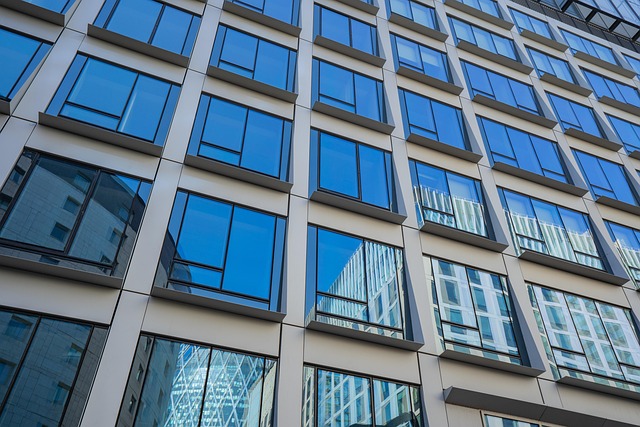Modular electric boilers are revolutionizing heating technology with their adaptable design, catering to diverse residential and commercial needs. Unlike traditional systems, these boilers use configurable modules to offer scalable power outputs, ensuring energy efficiency, environmental friendliness, and cost-effectiveness. Their flexibility allows seamless integration into modern spaces, accommodating changes in building size or heat load. With growing heating demands, modular electric boilers provide a flexible solution for building managers, offering easy adjustments to heating capacity, significant energy savings, and reduced carbon footprints, making them ideal for dynamic energy needs in both commercial and residential settings.
In the quest for efficient heating solutions, modular electric boilers emerge as a scalable alternative. These innovative systems offer a flexible approach to meeting expanding heating requirements, making them ideal for modern facilities. This article explores the capabilities of modular electric boilers, delving into their unique scalability, adaptability, and benefits over traditional systems. By understanding these advantages, facility managers can unlock efficient, future-proofed heating solutions with electric boilers.
- Understanding Modular Electric Boilers: Unlocking Scalability
- How Do These Boilers Adapt to Growing Heating Demands?
- Benefits of a Modular System: Efficiency and Flexibility
- Implementation and Future Prospects for Expanding Heating Systems
Understanding Modular Electric Boilers: Unlocking Scalability

Modular electric boilers represent a groundbreaking advancement in heating technology, offering a scalable solution for varying residential and commercial heating requirements. Unlike traditional, monolithic boiler systems, these innovative models are designed with flexibility and adaptability in mind. By configuring individual modules, each tailored to specific power outputs, they can efficiently meet the demands of expanding spaces or increased thermal needs without compromising performance.
This modular approach ensures that electric heating systems remain energy-efficient, environmentally friendly, and cost-effective, even as the building’s size or heat load changes over time. Whether it’s a growing family requiring more hot water or an expansion project demanding additional space heating, these boilers can effortlessly adapt, providing a clean and quiet operation that seamlessly integrates into modern living and working environments.
How Do These Boilers Adapt to Growing Heating Demands?

As demand for heating increases in both commercial and residential settings, modular electric boilers offer a flexible solution to meet growing requirements. These innovative systems are designed with scalability in mind, allowing them to adapt easily to changing needs. By configuring multiple units, building managers can enhance their heating capacity as their spaces expand or during peak seasons. This modular approach ensures that the boiler system remains efficient and cost-effective while catering to higher demands.
Unlike traditional boiler systems that might require complete replacements when facing increased demand, electric boilers can be easily integrated into existing infrastructure. They are compatible with various control mechanisms, enabling precise temperature regulation across large areas. Moreover, their energy efficiency is a significant advantage, as they leverage electricity—a clean heating source—to deliver consistent warmth, contributing to reduced carbon footprints and lower operational costs for both businesses and homes.
Benefits of a Modular System: Efficiency and Flexibility

Modular systems offer significant advantages when it comes to electric boiler applications, providing both efficiency and flexibility that traditional fixed systems cannot match. One of the key benefits is their energy-efficient heating capability. These modular units are designed to optimize energy use, reducing costs for users while minimizing environmental impact. By distributing heat generation across multiple smaller boilers, these systems can precisely meet varying heating demands, ensuring no excess energy is wasted.
This flexibility translates into a range of benefits for both commercial and residential settings, including easy expansion or downsizing based on changing requirements. For instance, in a growing business that needs to scale its electric heating systems or a home undergoing renovations requiring more efficient electric central heating, modular boilers can adapt seamlessly. This adaptability makes them ideal for modern, dynamic energy needs, where energy-efficient heating technologies like electric space heating are becoming increasingly popular and important.
Implementation and Future Prospects for Expanding Heating Systems

The implementation of modular electric boiler systems presents a promising approach to adapt and expand heating requirements efficiently. This technology offers a scalable solution, allowing for easy adjustments as demands fluctuate, whether in commercial or residential settings. By integrating these boilers into existing or new construction projects, builders and homeowners can benefit from flexible and energy-efficient electric heating systems.
Looking ahead, the future of electric heating systems appears bright with continuous advancements in electric central heating technology. As awareness of environmental sustainability grows, the demand for clean heating solutions will drive innovation in residential electric boilers and electric HVAC systems. This shift towards sustainable energy sources ensures a greener and more efficient home heating experience while potentially reducing carbon footprints, making it an exciting prospect for both industries and consumers alike.
Modular electric boilers represent a versatile and efficient solution for managing expanding heating requirements. By offering scalability and adaptability, these systems cater to the dynamic nature of energy demands. With their ability to quickly adjust to changes in usage, modular boilers provide both flexibility and cost-effectiveness. As we look towards the future, the implementation of these innovative systems is poised to revolutionize heating infrastructure, ensuring sustainable and responsive thermal management for residential and commercial spaces alike.
